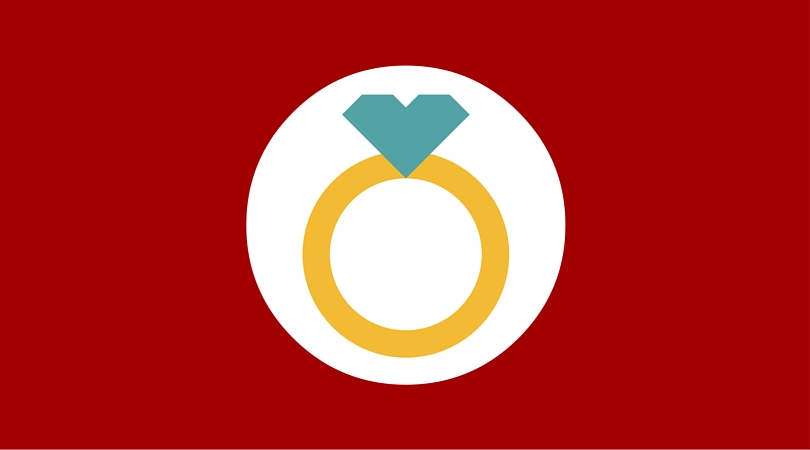Last updated on 07/08/24
Getting married is one of the most memorable things to happen in your life. And one of the most stressful ones, given the amount of organisation and planning involved.
If a wedding itself is hard to plan, a bicultural wedding isn’t a walk in the park either. It requires some extra paperwork and time (and patience!) than usual. Spanish bureaucracy is infamously notorious, so brace yourself for a slow and time-consuming procedure.
In this article, aimed at British-Spanish couples, I share a general overview of the process and documents needed to get married in Spain.
NOTE: this article applies to Civil weddings only. Religious weddings are not legally recognised in Spain. You need to register with the local civil authority to obtain a marriage certificate.
Contents
Requirements and process
The main requirement for you to get married in Spain is being a resident in Spain for the last two years or, if you live in the UK, for either party to be a Spanish national.
Before the wedding can take place, you and your partner need to get your documentation (expediente matrimonial) officially approved. The process involves submitting documents, making a statement and attending a personal interview. Some witnesses will also need to answer a few questions about you and your partner.
If you live in Spain, you need to process the documentation at your nearest Civil Registry Office (Registro Civil). The wedding can then take place at a different Civil Registry Office, if you wish.
If you live in the UK, the process will take place at the relevant Spanish Consulate. All the documents must be submitted to the Consulate at least eight weeks before the signature of the documents and your interview with the consul. Within two weeks from signing the documents, you’ll be informed of whether your documentation has been approved.
Documents required
These are the documents required from both parties, whether Spanish or British, in all cases:
- application, signed by both parties;
- certified copy of the Spanish National Identification document or passport;
- full birth certificate (certificado literal) of the Spanish national;
- full birth certificate of the British national (a ‘certified copy of an entry’ for English-born people, or an ‘extract of an entry from the register of births in Scotland’ for Scotland-born people);
- certificate of no impediment/Marital status certificate (or both);
- certificate of residence covering the last 2 years (unless exempt); and
- details of a witness (or two, depending on the consulate) and copy of their passport.
Additional documents required
Divorced parties will need to submit the documents below, depending on their nationality, where the divorce took place, and whether registered as a UK resident with the Spanish Consulate:
- Spanish marriage certificate with a divorce note;
- Spanish marriage certificate with an exequatur divorce recognition note;
- foreign marriage certificate and foreign final divorce order;
- foreign marriage certificate with a divorce note (or foreign marriage certificate and foreign final divorce order);
Widowed parties will need to submit the certificate of their previous marriage and their former spouse’s death certificate.
Remember: UK-issued documents must be apostilled. You must request the standard paper-based service, since electronic ‘e-Apostilles’ are not accepted for UK documents.
Notes for British nationals regarding the documents needed
Certificate of residence
British authorities don’t issue certificates of residence, as British citizens are not required to register their address at any institution or British Consulate. If you live in Spain, it’s advisable to print out and submit this proof of address letter by the British Consulate-General in Madrid written in Spanish.
Then, how can you proof your UK residence to Spanish authorities? From my translation experience for marriage purposes I can say most of my clients submit certificates of electoral registration for the last two years. Other submit a notarial certificate confirming their UK address for the last two years. P60s, council tax bills or employment contracts are also accepted as proof of residence.
Obtaining a Certificate of no impediment
You can get a Certificate of No Impediment (CNI) by giving notice of marriage to your local register office. Note that Certificates of no impediment are only valid for 3 months in Spain.
Requesting a Marital Status Certificate if you live in Spain
You can download the Marital Status Certificate for Marriage Application Pack prepared by the British Consulate General in Madrid. It contains the application form, information about the supporting documents you need, a credit card authorisation form and an affirmation to be signed before a local Public Notary in Spain before posting your application to the Consulate.
Sworn translations
Generally speaking, any document issued in a language other than Spanish will need (unless exemptions apply) to be translated into Spanish by a duly-appointed Spanish sworn translator such as myself. The translations will then need to be submitted together with the applicable documents to the Spanish consulate.
DISCLAIMER
The information included in this article is correct at the time of publication/last update. This article is for informational purposes only, does not constitute legal advice and should not be relied upon as such. Any reliance you place on such information is strictly at your own risk. ICR Translations will not be liable for any loss or damage arising from loss of data or profits as a result of, or in connection with, the use of this website.

Irene Corchado Resmella, a Spanish translator based in Edinburgh. English-Spanish sworn translator appointed by the Spanish Ministry of Foreign Affairs, Chartered Linguist and member of the CIOL. As a legal translator, I focus on Private Client law, specialising in Wills and Succession across three jurisdictions (England & Wales, Spain, and Scotland). Affiliate member of STEP. ICR Translations is registered with the ICO and has professional indemnity insurance.

